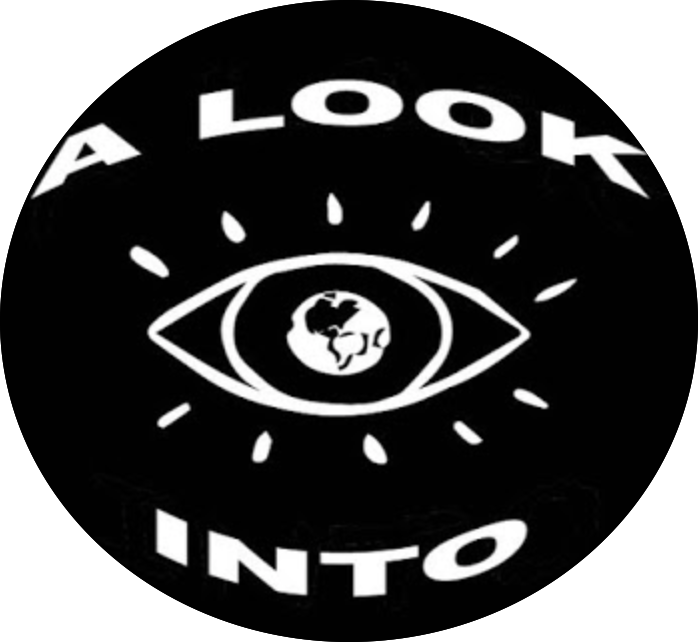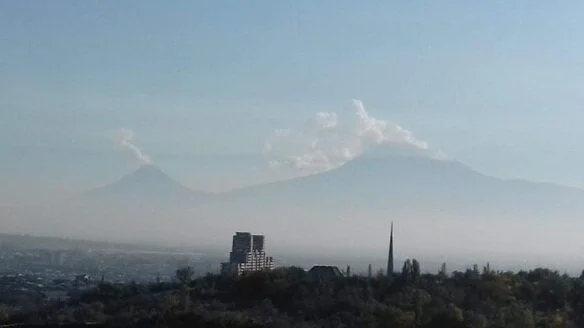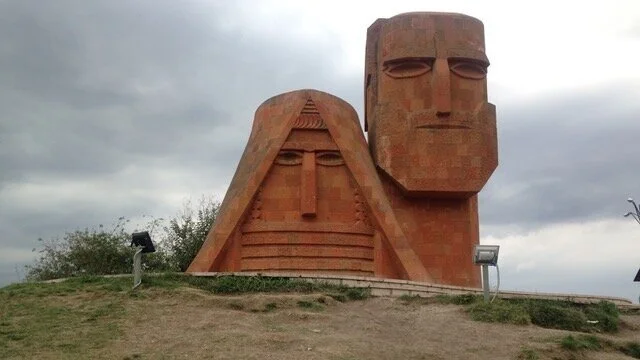History repeats itself: I fear another Armenian Genocide
By Lucy BarsegianWhilst the world idly watches, we Armenians are fighting another threat to our identity.
I cannot say it any clearer or shout any louder, this is not war; but a fight for survival.
On 27 September, Armenian’s across the world woke up to anguished murmurs of a war against Azerbaijan.
The disruption followed a broken ceasefire in the region of Artsakh, internationally known as Nagorno-Karabakh and after two months of escalating tensions, we’ve seen some of the worst fighting in the last 28 years.
Now, as a peace deal is struck, our hearts hang heavier than ever.
Mount Ararat’s two dormant volcanoes Greater Ararat and Little Ararat between Turkey and Armenia. Image courtesy of author
Russian President Putin's interference paints a path towards cultural cleansing as Azerbaijan gains seven districts around Artsakh, along with the city of Shushi.
We’re left voiceless as we hand over our sacred land and leave 150,000 indigenous Armenians displaced from their homes. Whilst Western media undermines our freedom fight as ‘skirmishes’ and ‘conflict over land’, we ask you to recognise what this is, a genocide.
Permanent tank situated on the Shushi border
. Image courtesy of author
Artsakh
The Republic of Artsakh has been home to indigenous Armenians since antiquity and has experienced deadly conflict since the collapse of the Soviet Union. The region of Artsakh was considered an oblast, gifted to Azerbaijan by Stalin in strong hopes of gaining Turkey as an ally.
Indigenous Armenians in the region saw their right to self-determination diminish as cultural genocide began to accelerate.
To save Armenian identity, a referendum was held in 1988 which declared independence from Azerbaijan and in 1991, the area became to be known as the de facto Republic of Artsakh.
Its international acknowledgment as ‘Nagorno-Karabakh’ strongly reinforces the settler-colonial logic which has silenced the Armenian struggle for recognition.
‘We Are Our Mountains’ monument in the capital of Republic of Artsakh, Stepanakert (also seen in Artsakh’s coat of arms). Image courtesy of author
The situation remains complex, layered with tense geo-political relations between Armenia, Azerbaijan, Turkey and Russia; it becomes obvious as to why I think no reporters have done it justice. Many people have probably never heard of Armenia, let alone Artsakh, this was my experience growing up in London.
But with the wide-spread attacks on Armenian churches and schools in San Francisco, and the recent rally by Turkish ultra-nationalists in Lyon, France that chanted “death to Armenians”, the Armenian struggle for self-determination is quickly becoming recognised worldwide. But this didn’t come easily and our struggle continues.
The president of the U.N. General Assembly, a Turkish man who has openly denied the genocide, has paved a clear path to overwrite our history and to claim it as ‘illegitimate’.
Genocide Watch have officially declared Azerbaijan’s offenses on Artsakh to be at their Stage 9 (extermination) and Stage 10 (denial) of the 10-stages of genocide. Aliyev’s use of hate propaganda on social media and Turkish, Russian and Israeli supplied illegal weapons such as cluster munitions and phosphorus reinforces that this is a genocide emergency.
What I’ve mentioned is only a small insight into the painful Armenian struggle.
Our diaspora spread across countries and isn’t just those who live in Armenia. It’s a constant reminder of our displacement and the unwelcoming pan-Turkic, fascist regime which is a product of “colonialism, nationalism and authoritarianism” that plagues the South Caucasus region.
Armenians have been protesting for recognition for over a century. Demonstrations are held within the Armenian diaspora on April 24th every year to commemorate our ancestors.
This is what we owe our great-grandparents, grandparents and parents whose pain is permanently etched in the stories they tell us about our culture, our history.
The generations before us have taught us to be un-apologetically Armenian, to be proud of our blood which has been mercilessly spilt just because of who we are.
But the world carries on as normal.
Speak up about the ongoing injustices. Join the movement #RecognizeArtsakh
HELP ARMENIA
While the conflict between Armenia and Azerbaijan is being mediated by international leaders, you can support people in Nagorno-Karabakh and Armenia too. Here’s an ongoing list of resources, petitions to sign, places to donate to, and organizations to follow to keep up with the situation in Nagorno-Karabakh:
Resources and petitions:
Donate:
Armenia Support Fund: https://www.armeniasupportfund.org / @armeniasupportfund
Paros Foundation: https://www.parosfoundation.org
My Step: https://www.mystep.foundation / @mystepfoundation
Red Cross Armenia: https://www.redcross.am
Kooyrigs: https://www.kooyrigs.org
Hoops for Hayastan: https://www.hoops4hayastan.org / @hoops4hayatan
Overview of the conflict:




